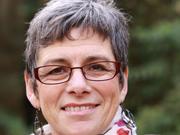Getting heated in the library: Assange and adult learning

One of the major impacts of becoming an adult learner, particularly for adults accessing learning opportunities for the first time since school, maybe in their community, is the sudden opening up of their minds. Adults often say ‘I hadn’t thought about that before’ or ‘I never realised it was so complicated’. We are all – teachers, learners, consumers – becoming more aware of the complexities of how we benefit from learning, especially with the access to knowledge that most of us have; often, now, at the touch of a button. The Wider Benefits of Learning Centre at the Institute of Education, has produced a stream of evidence, much of it based on longitudinal research, which shows the impact that learning can have on tolerance and curiosity – the wider social benefits of learning as an adult, particularly in a group, are beyond dispute.
As Raymond Williams pointed out, in adult learning groups, people cultivate critical skills by interacting with others whom they might not normally encounter, and thus develop a more honed and acute sense of questioning and critical analysis. As he said, our need for learning increases at times of greatest change so that we can make sense of that change.
I sat with an adult group in my local library the other night, and listened to them painstakingly developing their thoughts around the Julian Assange case, introduced by the tutor in a discussion about the Internet and the opportunities and threats it posed. Some of the group were ‘children of the Internet’, and use it as easily and simply as the older people who talked about ‘going to the Council’ to get information. Some older learners struggled with the idea of what Wikileaks was actually about. But all of them, mainly the wives and children from ex-mining communities, thought the idea of exposing what the
What happened next was interesting. One of the women mentioned the allegations of assault, and that this wasn’t just about Wikileaks. This inevitably lead to the sharing of personal experiences, both illuminating and painful… not one woman present had escaped some form of unwanted sexual harassment. The discussion that followed, lead with great skill by the literacy tutor, was an example of what often happens in an adult education class – personal stories were related, which meant that others were learning how to marshal an argument and developing the social skills, and confidence, needed to hold a discussion; the women were trying out new concepts (‘freedom for who though?’ as one learner said); and coming, as a group, to the difficult conclusion that a person could be both admired (for exposing truths) and very wrong (for avoiding trial for sexual assault and rape).
Many of these women stood alongside their husbands and fathers during the miners’ strike; many of them brought in vital money which their families relied on; many of them were, and remain, politicised by the events of those years; and many of them are still heavily involved in the regeneration of their communities. Many of them met and worked alongside women from many different backgrounds, particularly as part of the women against pit closures movement, and had to accommodate feminism as part of their developing political awareness.
Why am I telling this story to an FE audience? Because it reveals very starkly what adult learning is about – enabling and supporting adults to be able to take part in democratic processes, read and critically assess news and opinion, and work out what they think about things. As one person once said to us, “if you don’t take the opportunity to at least give it a go, you will never know what you’re missing and that first step to learn to read and write is the most painful thing you will ever do. If you don’t do it then you will never, ever know the gain. But the gain is worth everything…everything. Once you can, you can read those stupid articles people write you’ll be valid in saying ‘that’s a load of bollocks’.”
The group went home at the end of the class both stimulated and angry, fired up to ‘get on the Internet and look at the story’. As one woman said as she left the room, ‘just because he has done a good thing, it doesn’t mean he can’t also have done a bad thing’.
Carol Taylor is director of development and research at NIACE, which encourages all adults to engage in learning












Responses